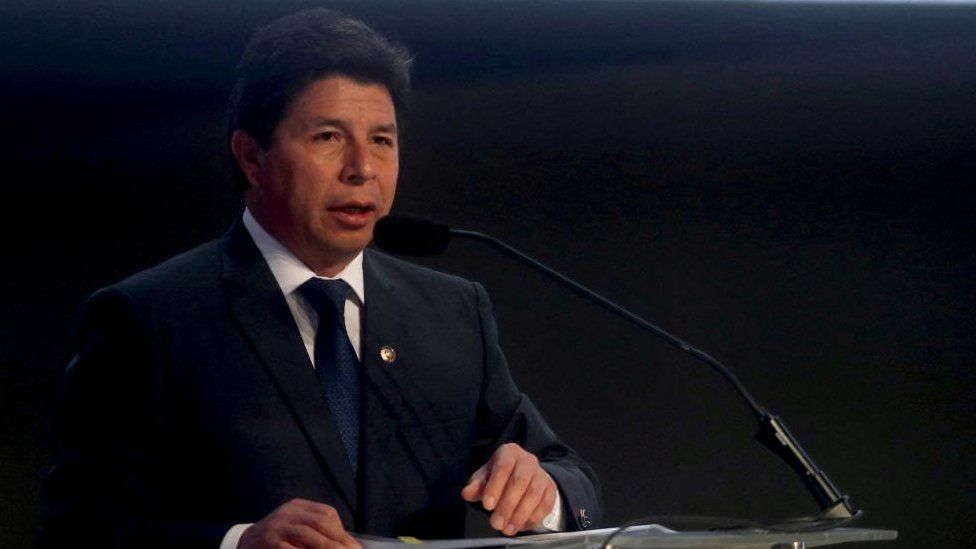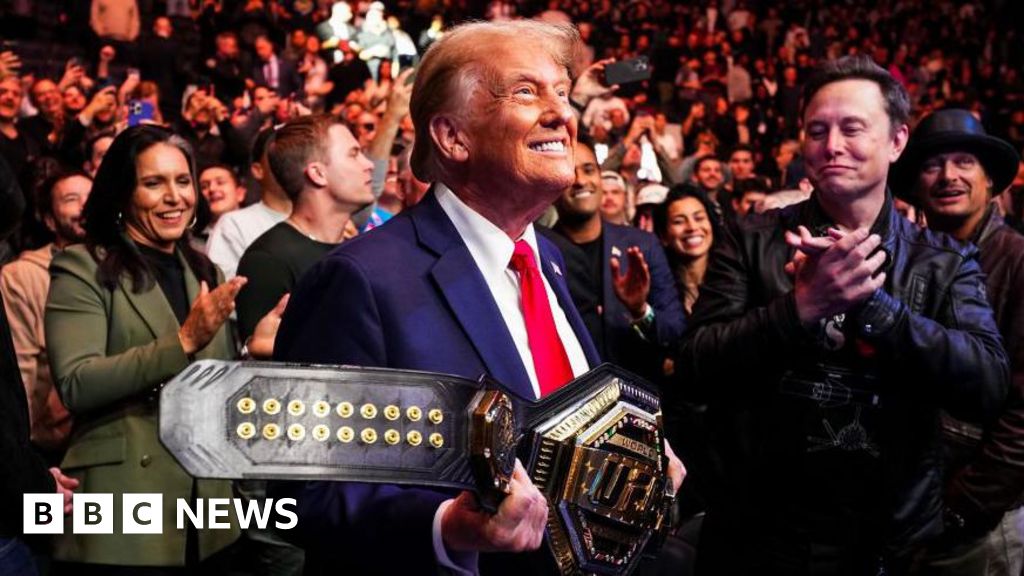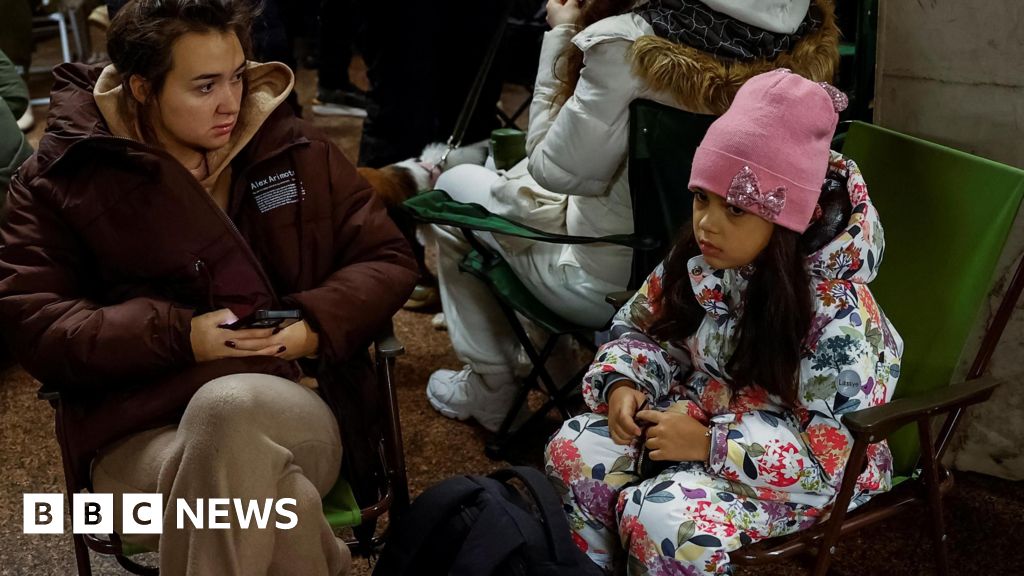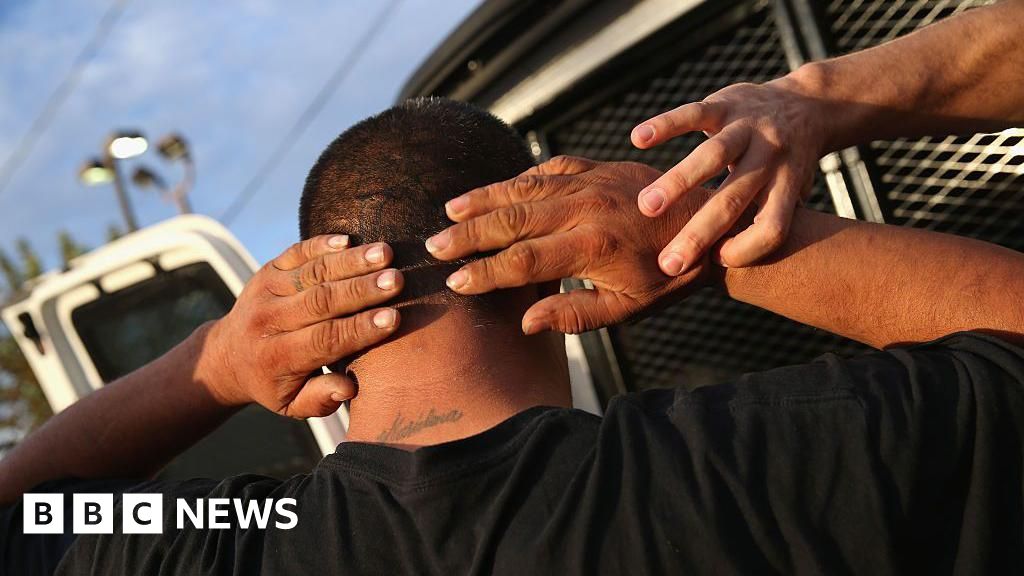ARTICLE AD BOX
 Image source, Reuters
Image source, Reuters
Pedro Castillo said he was dissolving Congress just before they were due to vote on his impeachment
Peru's ousted President Pedro Castillo has been detained by police and accused of "rebellion" and "conspiracy" to break the constitutional order.
He was reportedly detained on his way to the Mexican embassy in Lima, hours after he tried to dissolve parliament.
Images run by TV outlets showed the 53-year-old at police premises and co-operating with prosecutors.
He has reportedly been moved to a police-run prison, but Mexico says it is willing to offer him asylum.
The country's Foreign Minister, Marcelo Ebrard, said he was "very concerned" by Mr Castillo's detention, but said the former president had yet to make a formal request for asylum or aid from his government.
"Mexico regrets the latest events in Peru and wishes respect for democracy and human rights, for the good of that endearing sister nation," Mr Ebrard added in a post on Twitter.
Watch: Three dramatic moments from the day Peru's president was ousted
Mr Castillo was removed from office by lawmakers on Wednesday after he gave an address on national television in which he declared a state of emergency and outlined plans to rule the country by decree.
He announced that he would dissolve the opposition-controlled Congress, a move which was met with shock both in Peru - several ministers resigned in protest - and abroad.
The head of the constitutional court accused him of launching a coup, while the US "strongly urged" Mr Castillo to reverse his decision.
Peru's police and armed forces released a joint statement in which they said they respected the constitutional order.
Mr Castillo's attempts to dissolve Congress came just hours before it was due to start fresh impeachment proceedings against him - the third since he came to office in July 2021.
Elected as a political outsider, he has lacked a power base in the country's fractured legislature - especially since his break from the Free Peru party in June to govern as an independent.
And his government has been consistently surrounded by chaos, with dozens of ministers appointed, replaced, fired or quitting their posts in little more than a year.
In his televised address, he said: "In response to citizens' demands throughout the length and breadth of the country, we have decided to establish an exceptional government aimed at re-establishing the rule of law and democracy."
He said that "a new Congress with constituent powers to draw up a new constitution" would be convened "within no more than nine months".
While running for the presidency, one of Mr Castillo's main pledges was to call a referendum for an assembly to write a new constitution, to replace the current text enacted in 1993 under Alberto Fujimori. He had called for a document that "has the colour, smell and flavour of the people".
But he has faced a steady stream of investigations on whether he used his office to enrich himself, his family and his closest allies, and critics called his move on Wednesday an attempt to avoid impeachment.
Congress, which is controlled by parties opposed to Mr Castillo, convened an emergency session after his speech and held the impeachment vote that Mr Castillo had been trying to prevent.
The result was overwhelming: 101 voted in favour of impeaching him, with only six against and 10 abstentions.
Image source, Getty Images
Image caption,Former President Pedro Castillo seen inside a police car in Lima
He was later detained by police and in photos - which were shared by police on Twitter but subsequently deleted - he could be seen sitting, seemingly relaxed, and chatting to others.
In a statement, Peru's public ministry said Mr Castillo had been detained "for allegedly committing a crime against the Powers of the State and Constitutional Order". He has yet to be formally charged.
His downfall was marked by some small street clashes in Lima, with supporters marching and tussling with police. One demonstrator held a sign saying: "Pedro, the people are with you".
Meanwhile, metal barricades were erected around the government palace and Congress in Lima, while police in riot gear stood guard.
Image source, EPA/EFE/REX/Shutterstock
Image caption,There were skirmishes between police and angry Castillo supporters in the capital Lima
Mr Castillo's Vice-President, Dina Boluarte, was later sworn in as his successor.
A former lawyer who was something of a political unknown before being chosen as Mr Castillo's running mate, the 60-year old said she would govern until July 2026, which is when Mr Castillo's presidency would have ended.
She also condemned her predecessor's move to dissolve Congress as an "attempted coup" and pledged to form a new cabinet of all political stripes.
"What I ask for is a space, a time to rescue the country," she said.
The US ambassador to Lima welcomed the new government, while the US state department said it would "support Peru under the unity government President Boluarte pledged to form".

 1 year ago
18
1 year ago
18








 English (US)
English (US)